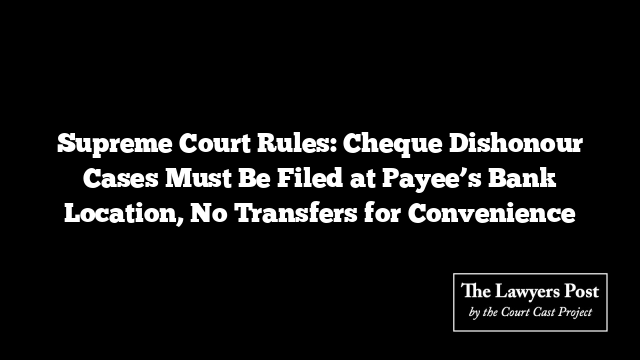The Supreme Court has ruled that the inconvenience of an accused person is not a sufficient reason to transfer a criminal trial under Section 406 of the Criminal Procedure Code (now Section 447 of the Bharatiya Nagarik Suraksha Sanhita). The Court emphasized that such transfers should not be granted as a matter of routine but only in exceptional circumstances where justice demands it.
A bench comprising Justices JB Pardiwala and R Mahadevan made this observation while hearing a batch of petitions seeking to move a trial from Coimbatore to Chandigarh in a case under Section 138 of the Negotiable Instruments Act. The Court ultimately rejected the request, stating that justice would not be better served by shifting the trial.
When Can a Trial Be Transferred?
The Supreme Court outlined five key situations where relocating a trial may be justified:
- Bias in the Prosecution – If the prosecution is colluding with the accused, leading to a miscarriage of justice.
- Threats to Witnesses or Complainant – If there is credible material showing that the accused could intimidate witnesses or physically harm the complainant.
- Significant Hardship and Costs – If the inconvenience and financial burden on the parties, witnesses, and the state outweigh the benefits of keeping the trial in its current location.
- Communal Tensions – If a case is so charged that a fair and impartial trial is unlikely.
- Interference with Justice – If there is evidence that individuals are actively obstructing the legal process.
While the Court acknowledged that no rigid rule can determine when a transfer should be granted, it reiterated that the power must be used sparingly and only in cases where it is essential to uphold the integrity of the trial.





